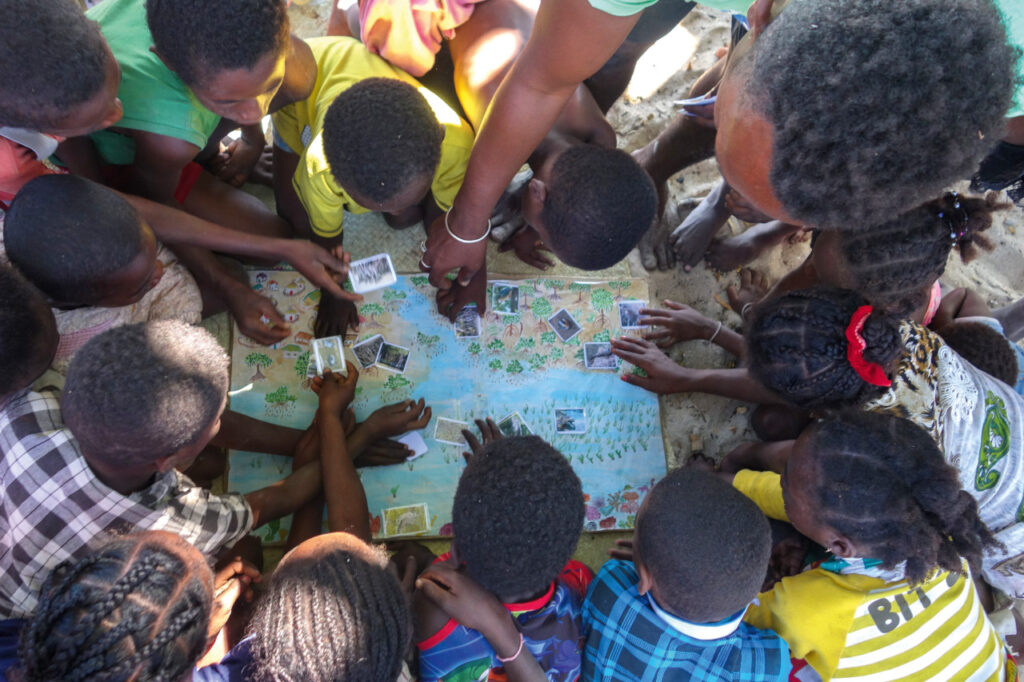[LUM#11] Made in Mada
Auriane, Raphaël, Isabelle, and Sabine, students pursuing a bachelor's degree in Ecology and Biology of Organisms (EBO) at the University of Montpellier, took advantage of the summer to do humanitarian work in Madagascar. It was an opportunity to work with the local population to promote greater respect for resources and to travel off the beaten track.

"When we arrived and the airport staff heard our destination, they stared at us in amazement!"says Auriane, 21. Nineteen hours by bush taxi and seven hours by boat later, the four students disembarked in Analalava, a small coastal town in northwestern Madagascar.
Raphaël, Auriane, Sabine, and Isabelle organized this project with Opti’Pousse Haie, an association founded by young researchers from Réunion and mainland France, with the aim of creating, in close partnership with a local association, a community-managed marine protected area in Analalava. Traveling around the region by pirogue, the four Montpellier residents took part in village assemblies to discuss the harmful effects of certain aquaculture practices and propose solutions for better resource management. "We talked to them about the breeding calendars of fish species and the types of nets to prioritize, "explains Auriane, " then the inhabitants chose what they wanted to apply in their village and what they didn't."
Three areas of focus
On site, the students organized themselves around three areas of work. The most important concerned raising awareness of sustainable agricultural practices, particularly agroforestry: the combination of trees and ground crops. "The idea was to identify the species cultivated by local farmers and foresters in order to create a theoretical database accessible to all," explains Raphaël. Residents were also able to observe experiments carried out on site, such as composting, crop rotation, and legume combinations.
Second component: education. Using an educational kit developed by IRD researchers and with the help of the association, Auriane was able to raise awareness among young people about the richness of the region's ecosystems: the reef, the seagrass beds, and the mangroves. This work is sometimes complex due to the country's socio-economic difficulties. "We had to adapt the kit because there is a high level of illiteracy in Madagascar and classes can have up to 40 children aged between 8 and 16."
"Full of little touches"
The third and final focus is the restoration of Madagascar's mangrove forests, "one of the most dynamic ecosystems on the planet because it stores enormous amounts of carbon," explains Raphaël, but one that is threatened in particular by the use of mangrove wood for heating and construction.
Beyond their Auriane mission, Raphaël Isabelle and Sabine discovered another way of traveling and interacting withpeople: "Everywhere we went, people offered to let us pitch our tent in their garden and gave us food. There were lots of little gestures like that!" It was an experience that planted not only trees, but also the seeds of long-term openness.
For interested students, the Opti'Pousse Haie association is regularly looking for volunteers in international solidarity.
Find UM podcasts now available on your favorite platform (Spotify, Deezer, Apple Podcasts, Amazon Music, etc.).